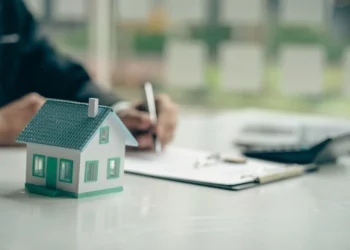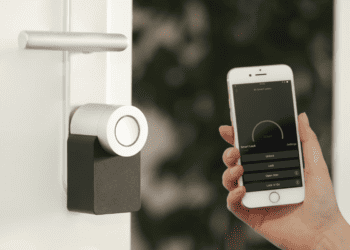A home inspection (or more than one) is a necessary part of buying or selling a home. For buyers, the home inspection will help you ensure that there aren’t any surprise repairs that you need to take care of once the home is yours. For sellers, a home inspection can let you know what needs to be fixed before you try selling your home in the first place. While some buyers are opting to waive inspections now to get ahead of other buyers, if you can manage it, a home inspection can give you peace of mind in the long run. And that goes for buyers and sellers.
Get it in writing
Like every other step of buying or selling a home, one of the number one tips for a home inspection is to get everything in writing. That means not only documenting what’s found during the inspection but having an agreement about who is responsible for repairs — the buyer or seller — and when they need to happen, especially if the seller needs to foot the bill. Having everything in writing will make it easier to come to an agreement about what that inspection will mean for the sale price. Sellers will also want to make sure that they have receipts for repairs that have been made on the house, in case an issue comes up related to that repair during the inspection.
Know that a home inspection can still miss flaws
A basic home inspection is intended to check on the condition of a home that is up for sale. The inspection will call out structural flaws and other issues like water damage, but you can’t expect a basic inspection to catch everything. For example, an inspection may not involve a detailed examination of an electrical system or every window in a home. When in doubt, you’ll want to opt for a more specific type of inspection — whether you are a buyer or a seller. Getting the parameters of the inspection in writing and determining who will pay for issues that come up after selling a home will help eliminate surprises if there is an issue that isn’t caught during the inspection.
Familiarize yourself with different types of inspections
Ancillary inspections go beyond the basic home inspection to assess specific areas of a home. Other inspections that are worth considering are termite and pest inspections, electrical inspections, and radon testing. Electrical inspections are generally recommended for homes that are more than 10-15-years-old, as wiring codes may have changed since the systems were installed. Radon testing can be advised for homes that use well water or have underground basements.
Consider attending the inspection
If you’re a buyer then you will definitely want to attend the inspection of your potential home. That’s so the inspector can explain any issues as they come up and you can have a better picture of the home that you are considering buying. While you won’t necessarily be able to follow the inspector around every nook and cranny, if you are there you’ll have the chance to ask questions and get a bigger picture than just what the inspector will share in the report. As a seller, you probably already know the ins and outs of your home, but attending the inspection can open your eyes to issues and potentially address them to ensure buyers that you are willing to take care of any problems that might come up. It can be a good strategy to talk to an inspector about issues that day, so they don’t have to try and remember the house after the fact.
Talk with your agent about issues
For buyers, you’ll want to talk with your agent about issues that come up and determine if there’s anything that might be a dealbreaker. While it might seem that you have found the perfect house, if a flaw comes up like a faulty HVAC system, you’ll have to decide if this is a dealbreaker or you want to find a solution for getting it fixed. Sellers need to be aware of the sale price they are expecting for their home and how much they can afford on repairs if something comes up — especially if a buyer won’t move forward without it. Having a solid understanding of your goals in advance and creating an open dialogue with your agent can help set you up for success, whether you are a buyer or a seller.
At least one home inspection is a necessary part of buying or selling a home. If you know what to expect ahead of time, you can make this task as painless as possible.






